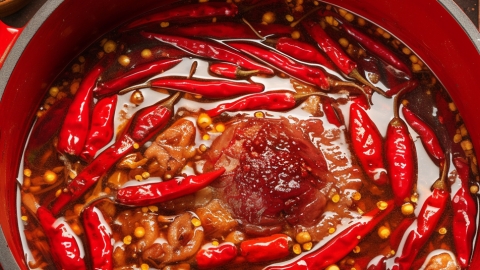What foods should patients with cholecystitis avoid eating?
Generally, patients with cholecystitis should avoid consuming high-fat meats, fried foods, spicy and irritating foods, gas-producing foods, and alcoholic beverages. These foods can easily stimulate gallbladder contraction, aggravate inflammation, or trigger discomfort. Detailed explanations are as follows:

1. High-fat meats: Such as fatty meat, animal offal, and processed meat products. These foods are high in fat and can stimulate strong gallbladder contractions, possibly triggering biliary colic or worsening inflammation, which is not conducive to the recovery from cholecystitis. Lean meats, fish, and other low-fat meats should be prioritized in daily meals.
2. Fried foods: Such as fried chicken, doughnuts, and French fries. During frying, food absorbs large amounts of oil and fat, requiring the gallbladder to secrete more bile for digestion after consumption. This increases the burden on the gallbladder and may cause abdominal pain, bloating, and other discomforts, so these foods should be avoided.
3. Spicy and irritating foods: Such as chili peppers, Sichuan peppercorns, mustard, and curry. These foods can irritate the gastrointestinal mucosa, indirectly triggering gallbladder contractions, and may worsen gallbladder inflammation, leading to increased discomfort.
4. Gas-producing foods: Such as onions, sweet potatoes, legumes, and carbonated beverages. Patients with cholecystitis may have weakened digestive function. Consuming gas-producing foods can easily generate gas within the gastrointestinal tract, causing bloating, which can press on the gallbladder and intensify physical discomfort. Intake should therefore be controlled.
5. Alcoholic beverages: Such as white spirits, beer, and red wine. Alcohol directly stimulates gallbladder contraction and may damage liver function, affecting bile secretion and excretion, which is detrimental to stabilizing cholecystitis. It may even trigger an acute attack, so patients should strictly abstain from alcohol.
In daily life, in addition to avoiding the above foods, patients with cholecystitis should also develop regular eating habits, avoiding overeating or excessive hunger. Eating smaller meals more frequently can help reduce the burden on the gallbladder.






